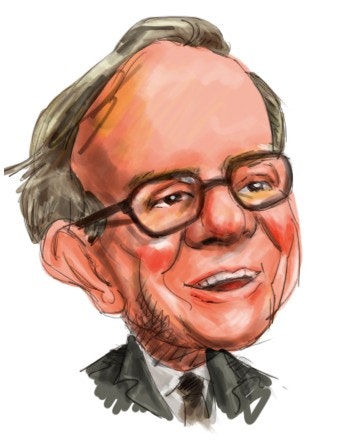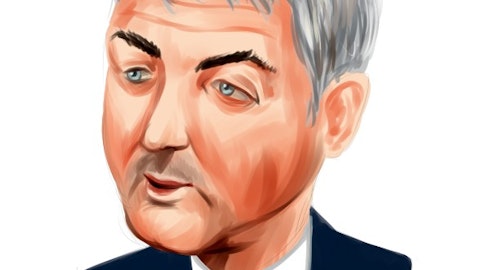Warren Buffett is undoubtedly one of the best investors to ever grace the markets, but even he sometimes makes mistakes. Buffett has stated on multiple occasions that he will never — ever — sell a single share of The Coca-Cola Company (NYSE:KO). Clearly, the Oracle of Omaha believes in the durability of one of the world’s most recognizable brands.

However, though Buffett appears confident about the company’s long-term future, the picture is not as clear for us mortals. Sales volumes of soft drinks have been declining for over a decade in the United States — a key market for The Coca-Cola Company (NYSE:KO), PepsiCo, Inc. (NYSE:PEP), and Dr Pepper Snapple Group Inc. (NYSE:DPS).
Sugary soft drinks are being blamed for contributing to numerous health problems, including high blood pressure and obesity. Also, numerous studies have shown a link between soft drink consumption and heart disease, a worrying correlation that is leading more consumers to reach for water, coffee, or healthier beverages in lieu of soft drinks.
The public’s growing concern with the ill-effects of soft-drink consumption has led to a secular decline in soft-drink consumption among American consumers. Per-capita consumption of The Coca-Cola Company (NYSE:KO)’s beverages in the U.S. was lower in 2011 than it was in 2001 — a worrying trend for a region that represents 22% of case volume .
PepsiCo, Inc. (NYSE:PEP) and Dr. Pepper have experienced similar declines as well. Dr Pepper Snapple Group Inc. (NYSE:DPS) president and CEO Larry Young blamed his company’s recent 3% volume decline on “some of the coldest and wettest weather in recent years,” but weather is hardly to blame for the long-term negative trend in U.S. soft-drink sales. The real problems are increasing consumer awareness about health risks associated with the beverages and mounting attacks from state and local governments in the form of container-size constraints and excise taxes.
For instance, New York City tried to prohibit the sale of soft drinks in containers over 16 ounces. In addition, several state legislatures have debated putting a tax on sugary drinks, including a recent effort in Texas to levy a penny-per-ounce tax on the beverages. Although neither of these efforts proved to be successful — the New York law was struck down by the courts and lobbying efforts have kept state legislatures from passing onerous taxes — pressure from governments continues to mount.
What the industry must do
PepsiCo’s Frito-Lay division — the world’s largest salty-snacks business — offers the company diversification into an area in which it has a competitive advantage. Dr Pepper and The Coca-Cola Company (NYSE:KO), on the other hand, are more or less committed to the sugary beverages market. Both companies would benefit from diversifying into adjacent categories beyond sports drinks and fruit juices.
In addition to diversifying their product mixes, soft-drink companies should also ramp up investment in emerging markets. According to The Coca-Cola Company (NYSE:KO), worldwide per- capita consumption of its beverages was less than one-fourth of its U.S. consumption, suggesting that there is still a long runway for growth in foreign countries.
But diversifying into other businesses and focusing on foreign expansion will only take soft-drink companies so far. The real solution is for the industry to develop an innovative sweetener that does not have the poor reputation of ingredients like high-fructose corn syrup and aspartame. Only then will the pressure from health groups and discerning consumers subside.
What investors should make of it
Warren Buffett likes The Coca-Cola Company (NYSE:KO) because it is an unparalleled consumer brand with strong customer loyalty. It is the kind of company that will continue to create value for shareholders for decades into the future. But that does not mean it is a great company for you to own.
Buffett’s investable assets are so large that he has to settle for slower-growing companies that offer decent returns. Chances are, you do not have the same constraints.
Investors should expect slower growth from all major soft-drink companies in the years ahead. The headwinds in the U.S. will not impair the companies’ ability to grow sales worldwide, but declining volumes in a huge market will be a permanent drag on top-line growth.
Look for Coca-Cola to either (1) diversify its operations; (2) experience strong volume growth in foreign nations; or (3) come up with an innovative (and healthy) sweetener before joining Buffett in the stock.
PepsiCo is in a better position than Coca-Cola and Dr. Pepper Snapple because it has already diversified into the salty snacks market. It also offers a strong dividend. Dividend stocks can make you rich. It’s as simple as that. While they don’t garner the notoriety of high-flying growth stocks, they’re also less likely to crash and burn. And over the long term, the compounding effect of the quarterly payouts, as well as their growth, adds up faster than most investors imagine.
The article Is Warren Buffett Wrong About Coca-Cola? originally appeared on Fool.com and is written by Ted Cooper.
Ted Cooper has no position in any stocks mentioned. The Motley Fool recommends Coca-Cola and PepsiCo. The Motley Fool owns shares of PepsiCo.
Copyright © 1995 – 2013 The Motley Fool, LLC. All rights reserved. The Motley Fool has a disclosure policy.




